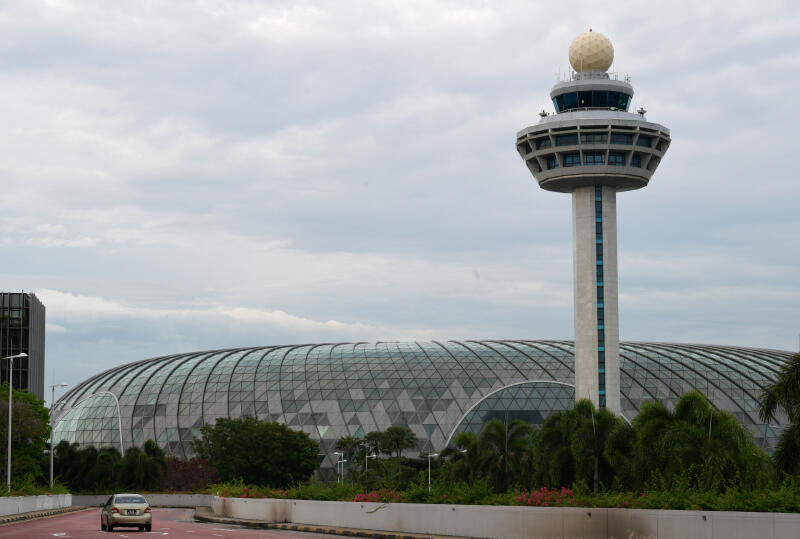Travel green lane with Germany, Malaysia and Korea suspended for three months
Sign up now: Get ST's newsletters delivered to your inbox

Singapore will review the reciprocal green lane arrangements at the end of the suspension period.
ST PHOTO: NG SOR LUAN
SINGAPORE - Singapore will suspend its reciprocal green lane arrangements with Germany, Malaysia, and South Korea for three months starting Monday (Feb 1), in view of a resurgence of Covid-19 cases worldwide.
The Republic will review these green lane arrangements at the end of the period, the Ministry of Foreign Affairs said on Saturday (Jan 30). Green lanes allow essential travel for business or official purposes between two countries.
Travellers who have already been approved to enter Singapore under these arrangements can continue with their plans, MFA added.
Singapore had agreed on green lanes with Germany, Malaysia and South Korea in October, August and September respectively last year. Its other arrangement with Malaysia, the Periodic Commuting Arrangement, will not be affected.
Green lane arrangements still exist with some countries like China.
The suspension shows the dynamic nature of the situation, which is constantly being evaluated, Mr Wong Soon-Hwa, chair of the Pacific Asia Travel Association, told The Sunday Times.
Mr Wong said: "Should the situation change, we must be prepared for suspension or cancellation of plans. It will be very frustrating and disruptive but is necessary."
The lasting impact of such suspended agreements on travel can only be known later, experts said, as much remains unknown - such as whether vaccinations could prove to be a game changer in reducing the risk of transmission and infection.
Professor Teo Yik Ying, dean of the Saw Swee Hock School of Public Health at the National University of Singapore, added: "It will also depend on whether globally or regionally, an international standard on recognising and verifying vaccination can be established. And even then, potential developments such as the emergence of new variants that are resistant to existing vaccines or the discovery that vaccination only provides very short-term immunity that wanes after a few months, could jeopardise progress."
Asked about the World Economic Forum slated to be held here in May, Prof Teo said it could be a challenge if the global Covid-19 situation worsens.
"I believe the organisers will only proceed with an in-person meeting when they are confident the meeting can be conducted safely with little infection risk to the attendees and the hosting community," he noted.
Singapore University of Social Sciences associate professor of economics Walter Theseira added that the suspension of the green lanes would not put Singapore at too much of a disadvantage.
While travel arrangements for business are valuable, the regions where the green lanes are suspended are generally those where nobody is travelling, internationally or domestically, because of the heightened Covid-19 risk.
So in that sense, with everyone on a similar playing field, Singapore will not be at a disadvantage, Prof Theseira said. Singaporeans keen to travel might also find it wiser to shelve the idea for now.
Prof Theseira said: "Covid-19 vaccines might protect travelling Singaporeans, but it wouldn't protect them against border closures, flight cancellations, and not being able to get routine medical treatment in case of a healthcare crisis in the region they are at.
"It is also unlikely that the authorities would exempt them from border controls simply based on vaccination, given the lack of accepted vaccination standards internationally."
This is not the first time Singapore has put the brakes on existing travel arrangements. In November last year, plans for an air travel bubble arrangement with Hong Kong, which would facilitate leisure travel, went up in smoke and had to be delayed in the light of a spike of Covid-19 cases in Hong Kong.


